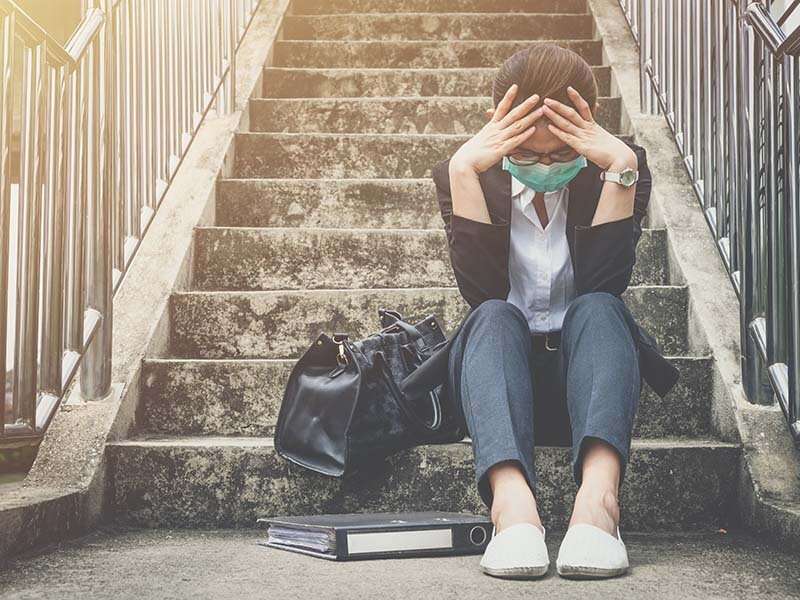Anxiety and alcohol misuse among pandemic-related mental health challenges Americans face


More than two years into the COVID-19 pandemic, behavioral health concerns continue to disrupt the lives of Americans, and addressing those concerns should be a major priority, according to a study by the Tulane University School of Social Work.
Published recently in the journal Scientific Reports, research from Patrick Bordnick, dean of the School of Social Work, and Tonya Hansel, a disaster mental health expert who oversees the school’s doctorate program, says that despite vaccinations and lifted restrictions, mental health issues continue to be a crucial concern as the pandemic enters a recovery phase.
“We found increased anxiety, depression and alcohol misuse and that the pandemic exacerbated prior problems,” Hansel said.
“While many are looking forward to their new normal or returning to pre-pandemic lifestyle, continued threat, vaccine uncertainties and strain variation serve as cautionary reminders that the global pandemic is ongoing,” she said. “Regardless of how long it takes for full recovery, more than a year of heightened fears, loneliness, economic consequences, and grief suggest that behavioral health will have longer term consequences.”
In addition to Hansel and Bordnick, others on the team include Leia Saltzman, assistant professor of social work; Pamela Melton, professor of practice; and Tanisha Clark, a licensed clinical social worker.
Researchers surveyed Americans from more than 30 states and representing a wide range of ages, ethnicities, educational backgrounds and income levels. Although more than a quarter of respondents reported having mental health problems before the pandemic, mental health challenges during the pandemic rose to 33 percent.
Anxiety increased by 47 percent, while depression was up by 9 percent. Respondents also reported an 8 percent increase in alcohol misuse.
More than a third of respondents reported such COVID-19 experiences as social isolation, working from home, loss of income and children and teens being out of school. Participants noting social isolation and personal health effects had higher anxiety and depression and lower quality of life. Participants with suspected or diagnosed COVID-19 reported more alcohol misuse and lower quality of life.
The survey data is from early in the pandemic, and Hansel said Americans continue to experience mental health challenges related to it.
“We are seeing issues now and will see more behavioral health issues for years to come,” Bordnick said. “Increased rates of relapse and new cases are growing each day.”
Hansel agreed. “In disaster mental health, when the threat has dissipated and individuals move out of survival mode, behavioral health problems become more apparent, and consequently, services, such as psychoeducation, therapy and brief treatments, are needed.”
“Prior to the pandemic, we had a shortage of mental health professionals. Now that the need has increased, the shortage is more dire,” Bordnick said. “Our hope is that this data raises awareness around the urgency to fund accessible behavioral health services to address preexisting needs as well the emerging stress and anxiety related to the pandemic.”
The study says an “urgent need” exists for enhanced behavior health services, including brief interventions to normalize symptoms, raise awareness of risk factors and teach coping skills.
The study also suggests that gains made toward telehealth over the past year can continue and increase access to mental health services.
Source: Read Full Article